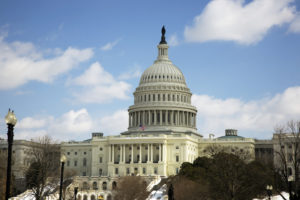Can Canada School Trump on Regulatory Reform?
As Trump takes aim at regulation, Canada’s experience with regulatory budgeting offers a possible template.
Unraveling Trump’s “Two-for-One” Regulatory Reform Plan
Scholar considers how costs and benefits might be calculated under a regulatory offsets system.
Potential Legislative Developments in the Regulatory State in 2017
The 115th Congress brings great promise for the Republican agenda, although not all planned reforms will happen overnight.
The Trump Administration’s Regulatory Reform Options
The new Administration and Congress can use several procedures to cut down on regulation.
President Trump’s Regulatory Vision
How the incoming President might shape his strategy in the regulatory sphere.
Improving Regulatory Analysis at Independent Agencies
Independent agencies should adopt four key analytical standards.
Improving the Process of Making Rules at Independent Agencies
Following certain procedural steps will strengthen independent agencies’ rulemaking processes.
Deciding Whether Software Will Eat the Bureaucracy
Agencies, policymakers, and the courts can all address the risks associated with cyberdelegation.
Preparing for Cyberdelegation and Its Risks
Automation in the administrative state could upset the relationship between people and their government.
The Surprising Use of Automation by Regulatory Agencies
Agencies’ uses of sophisticated information technologies highlight the possibilities of administrative automation.
Machines as Bureaucrats
New digital technologies promise improvements in government services but raise questions, too.
Artificial Intelligence and the Administrative State
No rubric exists to decide how to navigate the use of automation in the administrative state, but society can make informed choices.












